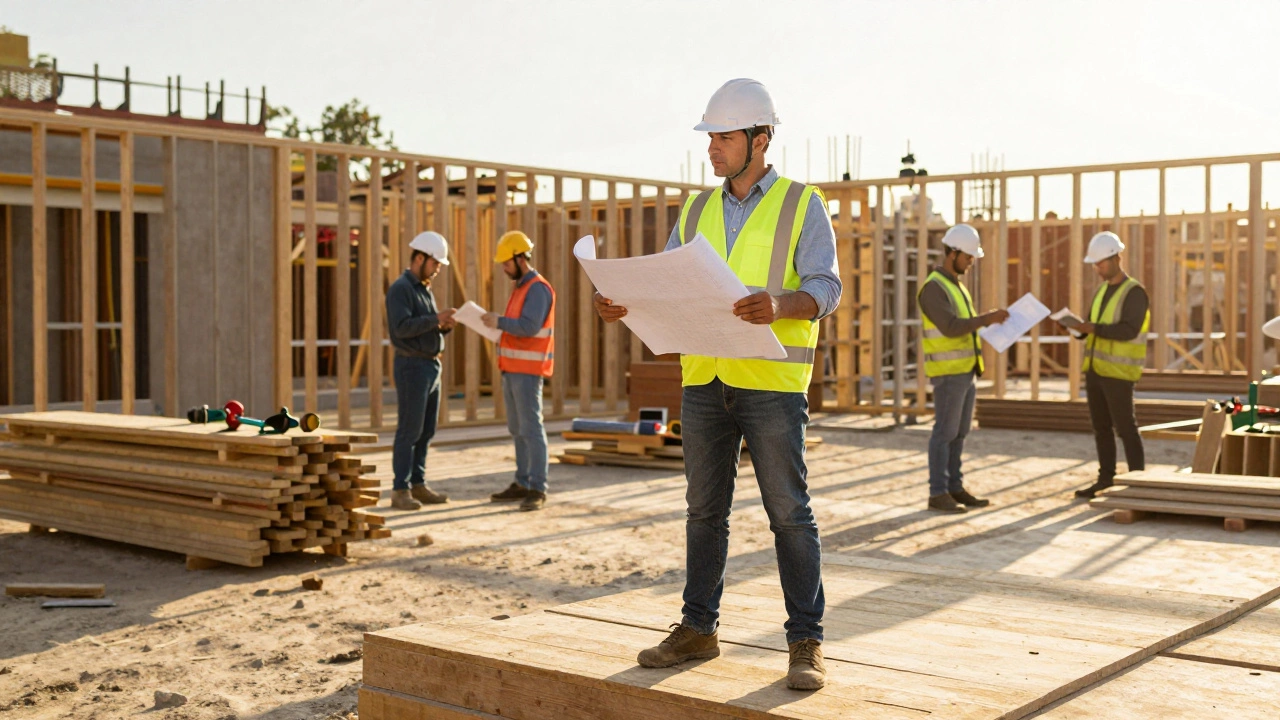Building Construction Career: Jobs, Pay, and Skills You Need
If you’re thinking about a future in building, you’ve hit the right spot. The construction world isn’t just hard hats and concrete – it’s a mix of trades, tech, and teamwork that can pay really well if you know where to aim.
First off, let’s clear up the big question: which construction jobs earn the most? According to our Highest Paid Construction Trades post, roles like project managers, specialised electricians, and steel‑frame installers sit at the top of the salary ladder. These positions often require a blend of hands‑on experience and formal training, but the payoff can be solid – think six‑figure packages for seasoned pros.
What Skills Get You Hired Fast?
Skills are the currency of the trade. If you’re just starting, focus on a core set that employers love:
- Blueprint reading: Understanding plans is a must. The 345 Rule article breaks down a simple technique to get right angles right away – a handy trick for any builder.
- Safety first: Knowing the health‑safety rules saves lives and keeps sites running smoothly.
- Digital tools: Even on a site, apps for measuring, scheduling, and cost tracking are becoming standard.
- Communication: You’ll talk to architects, electricians, and clients all day. Clear, polite chats avoid costly mix‑ups.
Pair these with a solid work ethic and you’ll stand out when an employer looks at your CV.
How to Get Into the Right Trade
Choosing a trade is like picking a path on a map – you want directions that match your interests and the job market. If you love working with your hands and enjoy problem‑solving, look at carpentry, plumbing, or the “inside vs outside” foundation crack repair methods discussed in our article on foundation cracks. If you prefer planning and coordination, aim for a site supervisor or project manager route, which usually starts with an apprenticeship in a hands‑on trade.
Apprenticeships are the fastest way to earn while you learn. Many UK firms sponsor young people, covering tuition and giving a wage. Check local listings or ask a builder you know for openings.
For those who want a quick entry, the Easiest Flooring to Put Down guide shows how simple flooring projects can be a stepping stone. Mastering peel‑and‑stick or laminate installation gives you confidence and a portfolio piece you can show to future bosses.
Don’t overlook niche areas like sustainable building. Our Foundation Problems post highlights how eco‑friendly practices—like using low‑impact concrete—are gaining traction. Green building certifications can boost your resume and open doors to higher‑paying, future‑proof jobs.
Finally, remember that a career in construction isn’t a straight line. You might start on a site, move into estimating, then end up managing a whole project. The key is to keep learning, ask questions, and take advantage of every training chance that pops up.
Ready to start? Grab a copy of the Highest Paid Construction Trades article, sketch out which skills you need, and line up an apprenticeship or short course. Your building construction career can be rewarding, stable, and surprisingly lucrative – just plug in the right tools and you’ll be building a future you can be proud of.






